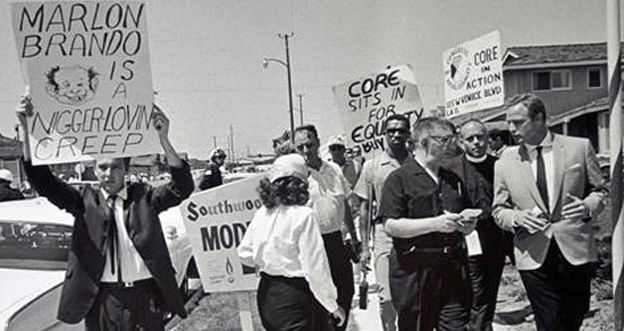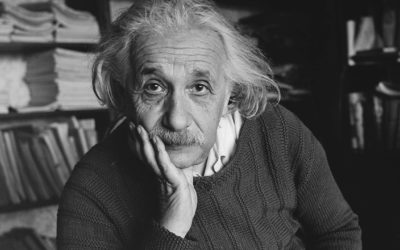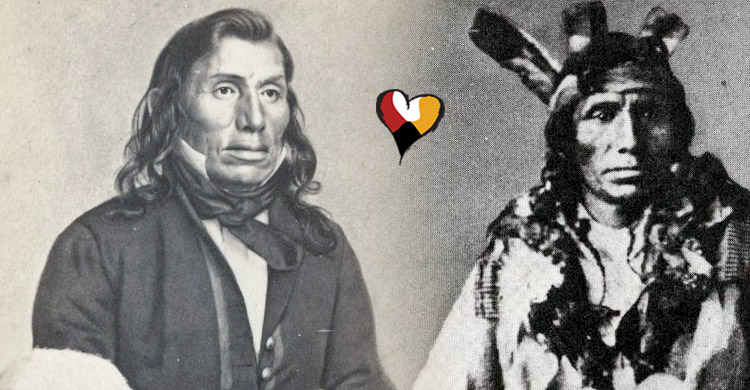Marlon Brando, an American Hero and Extraordinary Human Being. Brando was one of the first actor-activists to march for Black American and American Indian rights.
Actor activist Marlon Brando (Apr. 3, 1924 – Jul. 1, 2004) spoke out against racism often and forcefully. He marched in demonstrations. And he gave money to civil rights groups.
The Brando we want to remember, especially now, is the actor who pulled back in the 1960s to focus on supporting the Civil Rights Movement and the broader struggles against war and oppression. In 1959, he was a founding member of the Hollywood chapter of SANE, an anti-nuclear arms group formed alongside Black American performers Harry Belafonte and Ossie Davis.
Where are the actors like him in present-day Hollywood? A handful…
Marlon Brando is a cultural icon whose popularity has endured for over six decades. His rise to national attention in the 1950s had a profound effect on the motion picture industry and influenced the broader scope of American culture.
Marlon Brando’s childhood was not happy. His parents drank too much alcohol and argued often. Dorothy Brando blamed her husband for the failure of her acting career. The older Marlon Brando did not have a good relationship with his son. In a book about his life, the actor wrote that his father never had anything good to say about his son.
Marlon Brando moved to New York City when he was nineteen years old in 1943. He took acting classes at the New School for Social Research. In 1946, Brando showed his dedication to the battle against racial segregation in the United States.
Brando’s participation in the Civil Rights Movement actually began well before Martin Luther King Jr.’s death. In the early 1960s, he contributed thousands of dollars to both the Southern Christian Leadership Conference (S.C.L.C.) and to a scholarship fund established for the children of slain Mississippi N.A.A.C.P. leader Medgar Evers.

By this time, Brando was already involved in films that carried messages about human rights: Sayonara, which addressed interracial romance, and The Ugly American, depicting the conduct of US officials abroad and its deleterious effect on the citizens of foreign countries.
In August 1963, he participated in the March on Washington arm in arm with James Baldwin along with fellow celebrities Harry Belafonte, James Garner, Charlton Heston, Burt Lancaster, and Sidney Poitier.
Brando also, along with Paul Newman, participated in the freedom rides, went down South with the freedom riders to desegregate inter-State bus lines. In defiance of state law, American Indians protested the denial of treaty rights by fishing the Puyallup River on March 2, 1964.
Inspired by the Civil Rights Movement sit-ins, Brando, Episcopal clergyman John Yaryan from San Francisco and Puyallup tribal leader Bob Satiacum caught salmon in the Puyallup without state permits. The action was called a fish-in and resulted in Brando’s arrest.
In the aftermath of the 1968 assassination of Dr. Martin Luther King Jr., Brando made one of the strongest commitments to furthering King’s work.
When Dr. Martin Luther King, Jr. was assassinated in 1968, Brando announced that he was bowing out of the lead role of a major film and would now devote himself to the civil rights movement.
Marlon Brando said, “If the vacuum formed by Dr. King’s death isn’t filled with concern and understanding and a measure of love, then I think we all are really going to be lost..”
Shortly after King’s death, he announced that he was bowing out of the lead role of a major film (The Arrangement) which was about to begin production in order to devote himself to the Civil Rights Movement.
He gave money and spoke out in defense of the Black Panthers and counted Bobby Seale as a close friend and attended the memorial for slain prison leader George Jackson. Southern theater chains boycotted his films, and Hollywood created what became known as the ‘Brando Black List’ that shut him out of many big-time roles.
“I felt I’d better go find out where it is; what it is to be black in this country; what this rage is all about,” Brando said on the late-night ABC-TV talk show Joey Bishop Show.
OUR KIND OF HERO – SHOULD BE A CELEBRITY RULE!
For the 45th Annual Academy Awards® in 1973, Liv Ullmann and Roger Moore presented the award and Brando did not attend and refused to accept the Oscar for his performance in The Godfather. American Indian Sacheen Littlefeather represented him at the ceremony. She appeared in full Apache clothing and stated that owing to the “poor treatment of American Indians in the film industry”, Brando would not accept the award. —
THAT IS HOW CELEBRITIES SHOULD SUPPORT!
At this time, the 1973 standoff at Wounded Knee occurred, causing rising tensions between the government and American Indian activists. The event grabbed the attention of the US and the world media. This was considered a major event and victory for the movement by its supporters and participants.
“When they laid down their arms, we murdered them. We lied to them. We cheated them out of their lands. We starved them into signing fraudulent agreements that we called treaties which we never kept. We turned them into beggars on a continent that gave life for as long as life can remember. And by any interpretation of history, however twisted, we did not do right. We were not lawful nor were we just in what we did. For them, we do not have to restore these people, we do not have to live up to some agreements, because it is given to us by virtue of our power to attack the rights of others, to take their property, to take their lives when they are trying to defend their land and liberty, and to make their virtues a crime and our own vices virtues.”
-Marlon Brando
In an interview in Playboy magazine in January 1979, Brando said: “You’ve seen every single race besmirched, but you never saw an image of the kike because the Jews were ever so watchful for that—and rightly so.
They never allowed it to be shown on screen. The Jews have done so much for the world that, I suppose, you get extra disappointed because they didn’t pay attention to that.”
Brando made a similar comment on Larry King Live in April 1996, saying” “Hollywood is run by Jews; it is owned by Jews, and they should have a greater sensitivity about the issue of—of people who are suffering.
Because they’ve exploited—we have seen the—we have seen the Nigger and Greaseball, we’ve seen the Chink, we’ve seen the slit-eyed dangerous Jap, we have seen the wily Filipino, we’ve seen everything but we never saw the Kike. Because they knew perfectly well, that that is where you draw the wagons around.”
Larry King, who is Jewish, replied, “When you say—when you say something like that you are playing right in, though, to anti-Semitic people who say the Jews are—” at which point Brando interrupted. “No, no, because I will be the first one who will appraise the Jews honestly and say ‘Thank God for the Jews.'”
Brando was a well-known supporter of Israel for a time. In his later years, he became critical of Israel and a supporter of the Palestinian cause. In an interview with NBC Today one day after Brando’s death, King also defended Brando’s comments, saying that they were blown out of proportion and taken out of context. Brando is widely considered one of the greatest and most influential actors of the 20th century.
So how do we remember Brando?
He was a celebrity, a hero, an artist, an activist, and in the end, an isolated and destroyed old man?
Video Playlist of Legendary Marlon Brando’s Activism
It is tragic that we live in a world where most people’s talents never get to see the light of day. It is equally tragic that those like Brando who actually get the opportunity to spread their creative wings can be consumed and yanked apart in the process.
Yet whether Brando was on the top of Hollywood or alone and embittered, he never forgot what side he was on.
“If we are not our brother’s keeper, at least let us not be his executioner.”
~Marlon Brando
SOURCE: Compiled from counterpunch.org (David Zirin), Answers.com, Wikipedia
Speech for the Academy Awards protesting the treatment of American Indians, written by Brando, as it appeared in the New York Times (March 30, 1973)






